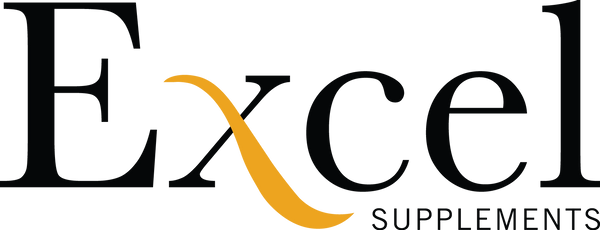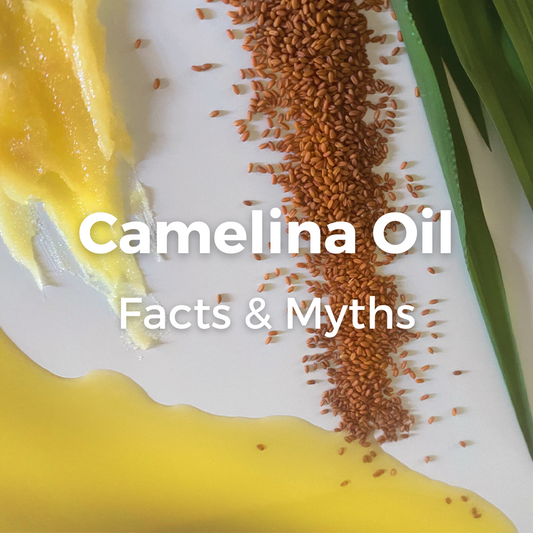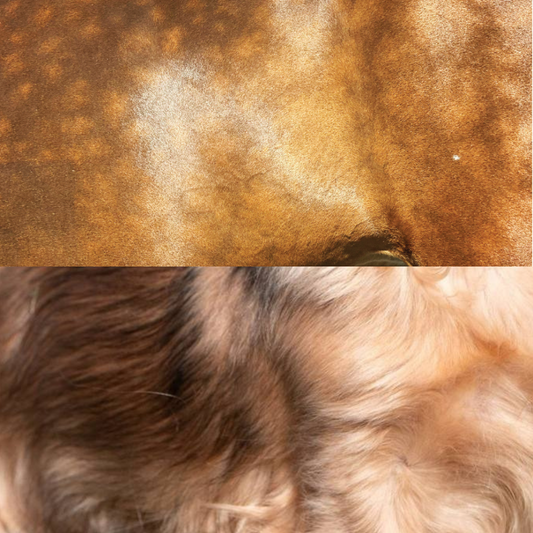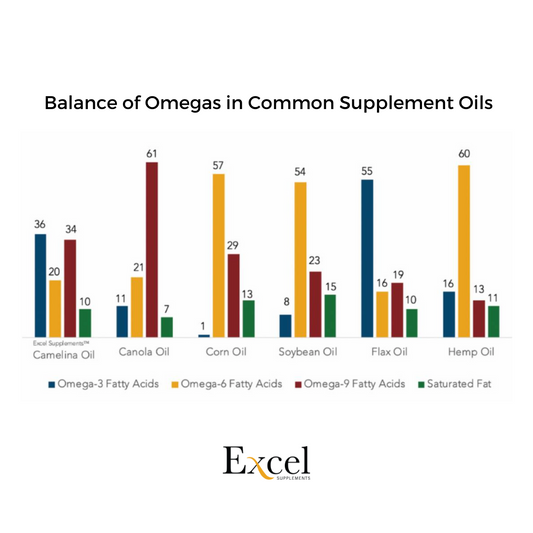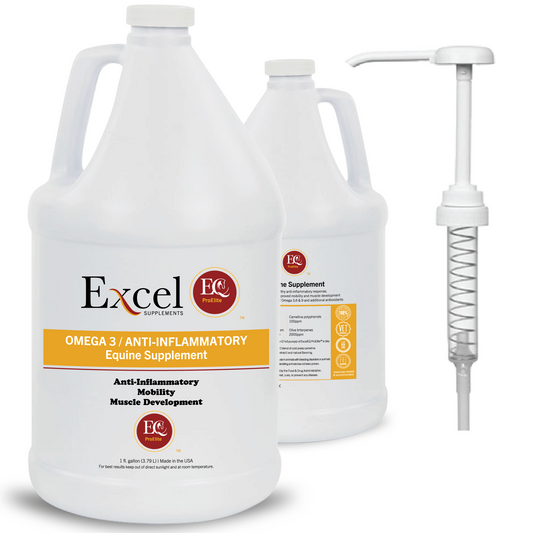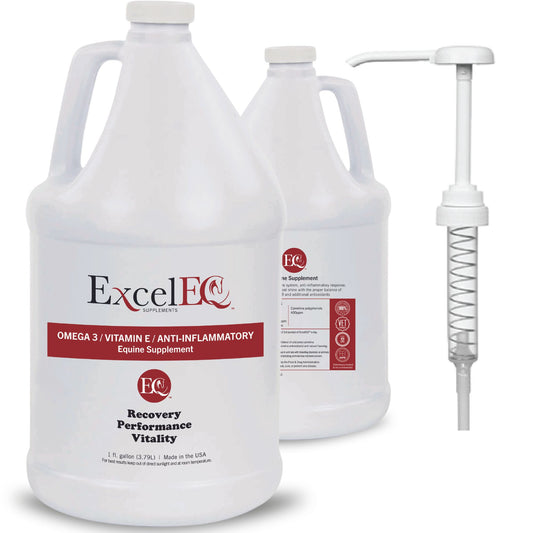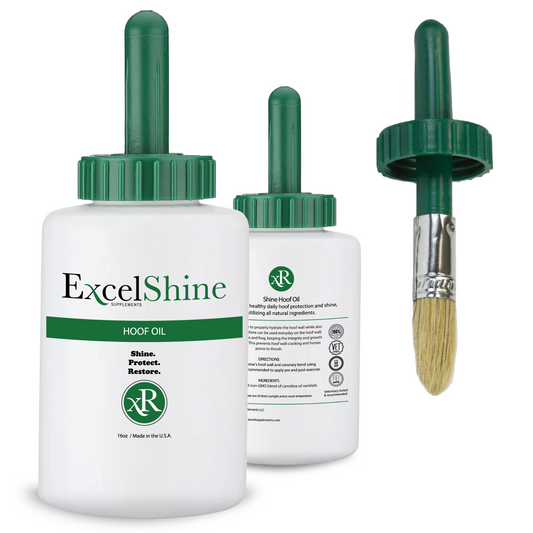Vitamin E for Horses: Facts and Myths
Share
For decades, horses of all ages and breeds have been supplemented with vitamin E. But are they truly getting enough? While hay and natural forage should ideally provide all the necessary vitamins and minerals for a balanced diet, many horses still require additional supplementation. Symptoms like muscle loss, inconsistent weight gain, dull coat, and brittle hooves often indicate a deficiency. With a plethora of "equine supplements" available online, choosing the right one can be overwhelming and confusing.
Common supplements like flax, soy, and fish oils provide Omega fatty acids but often lack sufficient vitamin E. To address this need, Excel Supplements™ offers a unique solution. Our innovative Camelina oil formula ensures a balanced intake of Omega fatty acids along with essential vitamin E.
Understanding Vitamin E for Horses
1. Horses Obtain Vitamin E Primarily Through Green Pasture
Fact: Lush green grass is a natural source of vitamin E and provides enough fat for absorption. However, not all horses have access to rich pasture year-round. In such cases, vitamin E supplementation becomes necessary.
2. Vitamin E Deficiency Can Lead to Long-Term Health Issues
Fact: Horses with vitamin E deficiency are at risk of developing severe conditions such as nutritional myodegeneration (especially when combined with selenium deficiency), equine neuroaxonal dystrophy, and equine degenerative myeloencephalopathy.
3. All Vitamin E Supplements Are the Same
Myth: Vitamin E comes in various forms, but only d-alpha-tocopherol is the natural, organic form known for its high bioavailability. Synthetic forms like dl-alpha-tocopherol are less effective for horses.
4. Hay Loses Vitamin E Content Slowly Over Time
Myth: Hay begins to lose its nutritional value immediately after cutting and can lose up to 50% of its vitamin E content within a month of storage.
The Role of Vitamin E in Equine Health
5. Vitamin E Supports Multiple Bodily Functions
Fact: Vitamin E acts as a powerful antioxidant, crucial for maintaining normal neuromuscular function. It also supports healthy eyes, the reproductive system, the immune system, and promotes a healthy skin and coat.
6. Horses Do Not Build Up and Store Vitamin E
Myth: Fat stores can temporarily hold vitamin E however, horses cannot sustain long periods without adequate forage and vitamins.
7. Vitamin E Is a Complex Group of Compounds
Fact: Vitamin E comprises eight compounds—alpha-, beta-, gamma-, and delta-tocopherol and tocotrienol. It is fat-soluble, requiring fat for proper absorption. Excel's camelina oil includes Gamma-tocopherol, which provides powerful antioxidant and anti-inflammatory benefits.
Excel Supplements™: The Superior Choice
Excel offers two exceptional formulas—ExcelEQ™ and ExcelEQ ProElite™—providing a balanced source of Omega fatty acids and natural vitamin E. Our Camelina oil-based supplements deliver a precise blend of omega-3, -6, and -9 fatty acids, enhancing nutrient absorption and overall horse health.
Key Benefits of Excel Supplements™:
- Optimal Omega Fatty Acids: Our proprietary Camelina oil contains 45% omega-3 alpha-linolenic acid, balancing essential fatty acids in the horse's diet.
- Enhanced Absorption: Excel Supplements™' unique formula helps horses absorb vital nutrients efficiently, reducing the need for additional or excessive supplementation.
With Excel Supplements™, you no longer need to worry about incomplete diets or ineffective supplements. Our products ensure that your horse receives the right balance of nutrients for optimal health.
For more information, contact us to discover how Excel Supplements™ can enhance your horse’s diet.
Sources:
- Ramey, David. “Vitamin E.” David Ramey, DVM, 16 Dec. 2018
- Kentucky Equine Research Staff. “Choose Natural Vitamin E for Horses.”
